Support strong Canadian climate journalism for 2025
Even before Jagmeet Singh announced his bid to lead the federal NDP, the Ontario MPP was considered a serious contender — with a growing national profile — to succeed Thomas Mulcair.
His entrance in the race was also considered a shake-up, a shot of excitement in a competition that at first seemed to be in need of competitors.
Today, he's proposing to shake-up the distribution of wealth in Canada, introducing a series of national programs to expand and improve healthcare and social assistance.
This summer, Singh sat down at Vancouver's Caffe Brixton with Am Johal, where they talked about housing, what sets Singh apart from Prime Minister Justin Trudeau and Conservative Leader Andrew Scheer, and what the NDP needs to do to win in the future.
"I believe in social democratic values, universal social programs like health care, but expanding them into more universal services like pharmacare and dental care," Singh said. "Universal medical care should include services that are currently excluded. I want to expand single-tier medical services. I want to expand daycare, a national housing plan. I strongly believe in wealth redistribution."
Throughout the interview, Singh emphasized areas he wants to change about how Canadians interact with government. They range from how Old Age Security works to ensuring housing is treated as a right rather than a commodity. Singh envisions streamlining two programs and two tax credits into one single program aimed at, "lift(ing) seniors out of poverty."
He also proposed "true nation-to-nation" relations with Indigenous peoples and suggested this approach by an NDP government would mark a departure from Liberal and Conservative practices to date.
Singh announced he would run in May, making him the last to join a field that already included MPs Niki Ashton, Charlie Angus, Guy Caron and Peter Julian (who left the race in July).
By August, his fundraising had outpaced that of his rivals' campaigns. In September, Singh, who is Sikh and wears a turban, was the target of a racist rant. The heckling and Singh's response were captured on video and circulated widely online.
Singh was elected MPP for Bramalea-Gore-Malton in 2014, following a failed bid for the seat in 2011. The seat, which takes in parts of Mississauga and Brampton, had been held since 2003 by Liberal Kuldip Kular. He is also the deputy leader of Ontario's NDP.
Leading up to the NDP's announcement of first ballot results, National Observer sent Singh additional questions about energy, the environment, and where he stands on oil pipelines. The two interviews have been edited and brought together.
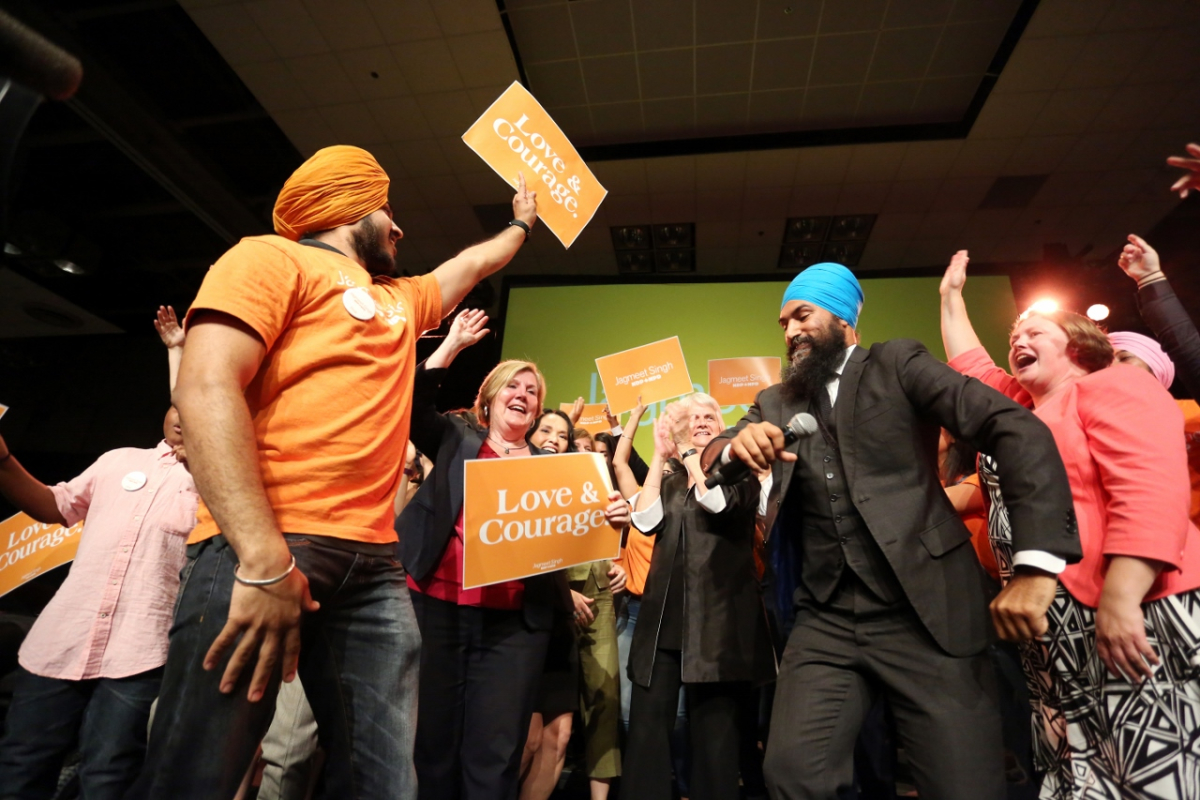
Though you've been elected as an MPP in recent years, people are still getting to know you in the rest of the country. I’m wondering if you can talk about what you were doing prior to holding elected office?
I was a trial lawyer. I worked with a number of marginalized communities that had access to justice issues. I took a lot of legal aid certificates. There were many community groups that I worked with and protested with as an activist student. I later helped with providing them legal advice. Groups fighting against poverty, groups fighting for refugee rights. I provided them with legal advice, legal representation and held my rights seminars and workshops, particularly for university students across Ontario. Both in the GTA and in rural communities as well. I was also interested in human rights issues and did that for about six years. I was a lawyer and supporter of activists. I eventually got involved in politics in 2011.
You ran in (Bramalea-Gore-Malton), which is a complex riding, not one that the NDP traditionally does well in. Can you speak to the way that you organized there to make it a winnable riding, since so many (Greater Toronto Area) ridings will be fought over once again in the next election—ridings where the NDP will need to find a way to be competitive in order to make gains. What was unique to your campaign that you would now be bringing to the NDP more broadly at the federal level?
You’re absolutely right. Not just in my riding but in that entire region. We won for the first time in the Peel region ... that includes 1.4 million people. People had never really known the NDP as a viable option. We ran a real campaign that was fully funded in order to be competitive. We did all the usual nuts and bolts of signs and offices that are part of any campaign, but that of course isn’t enough. We campaigned in a unique way—we weren’t overly partisan. People had traditionally voted Liberal and Conservative in that riding. We tried to connect with people’s values and issues rather than in overly partisan ways.
People were comfortable voting Liberal and Conservative so making a partisan appeal wasn’t going to be particularly effective. Attacking the Liberals wasn’t actually going to work in this riding. But there were issues that were being neglected that connected to people’s values.
I focused on raising those issues through the lens of social democracy, which ultimately (is) where most Canadians are. ... We did it by using language that people can relate to. We looked at innovative ways to engage people because we had to do things differently, including social media. A traditional campaign was going to be ineffective. When I was running for the first time, there wasn’t really an NDP base to draw upon. We campaigned to youth, including those who weren’t old enough to vote. They became volunteers and were part of the decision-making process and paid staff. Their parents became NDP voters for the first time because the enthusiasm of their kids became contagious. They didn’t even probably like the NDP at the beginning of the campaign. We need to take risks based on our principles and good things will happen. Campaigning to people who don’t vote goes against the grain, but there are spin-off effects.
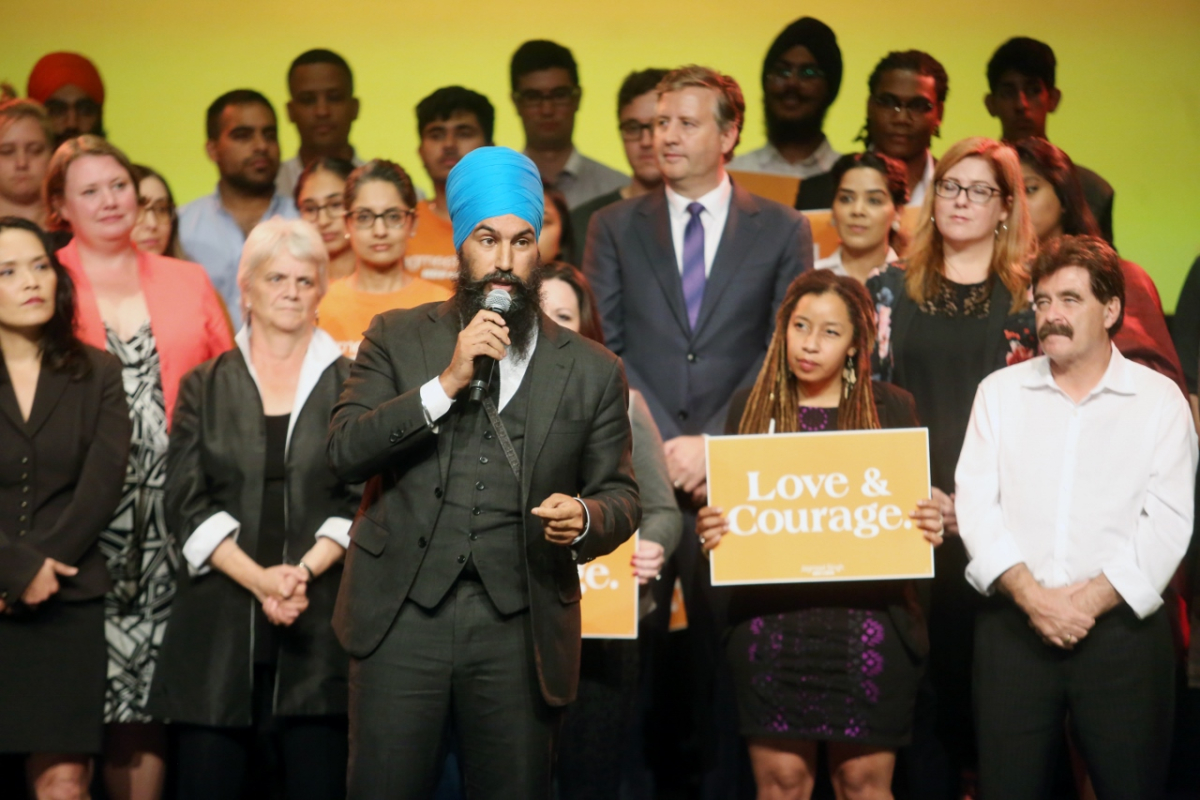
The last (federal) election results were disappointing for the NDP after being the Official Opposition. What do you bring that’s new to the leadership race?
I believe in social democratic values, universal social programs like health care, but expanding them into more universal services like pharmacare and dental care. Universal medical care should include services that are currently excluded. I want to expand single-tier medical services. I want to expand daycare, a national housing plan. I strongly believe in wealth redistribution. Programs like OAS (Old Age Security) need to be strengthened so money moves from the wealthy to lower income people. Seniors are living with low incomes while two Harper-era tax credits benefit wealthier seniors. This is the unfairness that needs to be reformed as part of OAS renewal. It’s a cynical form of politics that Harper used, hoping to get seniors to vote for him. I would scrap those two tax credits and instead put more money in to the OAS in a way that will result in a basic income for seniors to live with dignity.
I believe not just in these principles and ideas but backing them up with policy that’s realizable. The vision I want to bring is how do we connect emotionally with people while having practical ideas (for) carrying forward a social democratic idea and vision and practical plan to achieve it. I’m confident I can connect with people in a way that Justin Trudeau and Andrew Scheer can’t. I’ve had many struggles in the way that other Canadians have had struggles. I had struggles with belonging here because of the way I looked. I’ve had to step up to support my family financially so I understand some of the difficulties that people face. I am confident I can bring people in to the NDP that share our values but have never felt home in the NDP before.
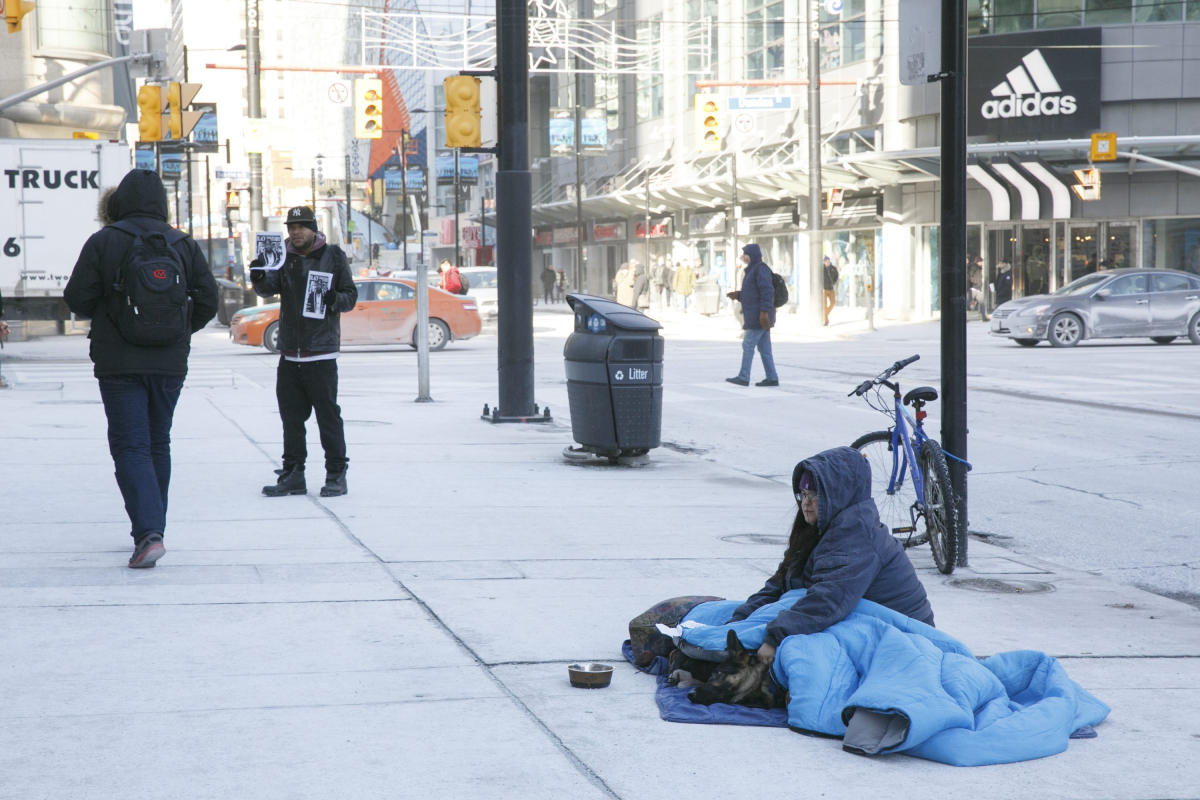
We’re here right now in (Vancouver's) Downtown Eastside neighbourhood ... gentrification, housing, homelessness are major issues here. Overdoses related to fentanyl and other opioids are at crisis levels. These are of course not issues specific to Vancouver, but impacting urban and rural areas across the country. Could you speak to these two issues and how you would address them at the federal level?
First of all, the opioid crisis is a crisis but it’s not being treated as a crisis. It’s not receiving the attention that it needs. I strongly believe in harm reduction. We need more safe injection sites and decriminalization. We have addicts who are being criminalized for what is truly a health issue and should be treated as such. We should be approaching this from a health lens rather than a criminal justice lens. The solution to this system won’t come from the criminal justice system. We need to put our resources in to harm reduction and other forms of rehabilitation. I’m going to propose a pretty extensive criminal justice reform that proposes that health issues such as addiction be dealt with by the health system. It’s one small step in working towards a solution rather than exacerbating existing institutional problems.
On housing, I have a few points. One is that the federal government hasn’t had a national housing plan for a generation. We will invest heavily in that. We will fund and build social housing units (for) those who need them most, but also across the continuum of needs, including co-op housing.
There is something around housing becoming a commodity and becoming a financial instrument that needs to be proactively challenged through public policy. Housing should be a place where we live and grow and be a part of our communities. Housing should be a right — housing should be affordable. We need to look to how we can shift housing as a commodity to something rooted in community that has speculation heavily cooled down. We can look at changes to the tax code that can help us bring about those changes that will ultimately benefit the vast majority of people. We need a fundamental shift. If you look at the 15 per cent tax on foreign owners, it’s just a symptom of a broader problem. We have to look deeper. We need to stop housing from being a commodity through a series of public policy interventions. When housing becomes a commodity, only some people can afford it. It exacerbates social inequality. That’s the philosophical issue we need to address. Housing should be a right.
You’ve been criticized on your OAS (Old Age Security) position by the other NDP leadership candidates. I’m wondering if you can clarify your position?
I want to strengthen OAS and make it stronger by tearing down the complexity of multiple programs. There are four programs for seniors beyond the (Canada Pension Plan) — there’s OAS, (Guaranteed Income Supplement), and then two tax credits. What I’m proposing is that we simplify it — rather than have four different programs to access, we just have one. I want to strengthen and enhance OAS. It would quadruple what it is today for low income seniors. By focusing on enhancing OAS, it would lift seniors out of poverty. I’m also asking us to get rid of two Harper-era tax credits and instead amplify the existing programs.
OAS isn’t a universal program currently — it’s tied to income already. High income seniors don’t get OAS. I’m not changing that. That’s the current system. What I’m proposing to do is to add more resources to this to make it stronger so it actually helps more people who need it the most. It’s a universal guarantee against poverty and it’s an income transfer. Income transfers have to go from rich to poor. The existing OAS would be stronger if we put in these changes.
Canada has a soft power status of persuasion historically, given its size. How do you see Canadian foreign policy under an NDP government under your leadership?
Soft power is the power we have. Soft power was historically used for peacekeeping and other policies abroad. The role we can play is for disarmament and demilitarization in terms of conflict resolution. We need to look at what the military does well like disaster response. They do phenomenal work. We need to make sure the military is well funded to carry out disaster relief nationally and to also help out internationally in that regard in a broader way. We need to continue to be leaders in peacekeeping.
The federal government needs a major overhaul in terms of policies related to Indigenous people. Can you speak to how you would approach this as the potential next leader of the NDP?
One thing to know is that there have now been four compliance orders issued by the Canadian Human Rights Tribunal against the government saying that Indigenous students deserve equitable funding. I would immediately comply with those orders and not fight them in court as the current government has been doing. The government has sent in lawyers to fight Indigenous communities on these issues of equity. It’s a waste of government resources to fight this clear issue of social injustice. I would not send lawyers to fight that. Indigenous people clearly deserve equitable funding for education. They probably deserve more than that actually.
Areas of major concern include access to clean water. Real funding behind that is something I feel strongly about.
Indigenous languages are a national treasure. Languages provide insight in to how we see the world, the way that we think about the world, how we interact with the world — not only will investing in them give us history, wisdom and knowledge we need to view losing Indigenous languages as losing something intrinsic and unique to where we are in the world and who we are, ultimately. So we need to support that through funding. We need to make sure we have supports to people who want to learn their own languages. We need to not just preserve them, we need to create the conditions for them to flourish. We need appropriate funding to make that happen.
In general the solutions related to the challenges Indigenous communities face, the solutions should come from Indigenous communities themselves. The federal government has traditionally taken a top down approach under Liberal and Conservative governments. Our approach under an NDP government would be totally different. We need to have a true nation-to-nation relations. True reconciliation can only happen when indigenous communities have true decision-making power. We need to recognize and implement the UN Declaration on the Rights of Indigenous Peoples and the recommendations of the Truth and Reconciliation as a basic starting point, and go much further still.
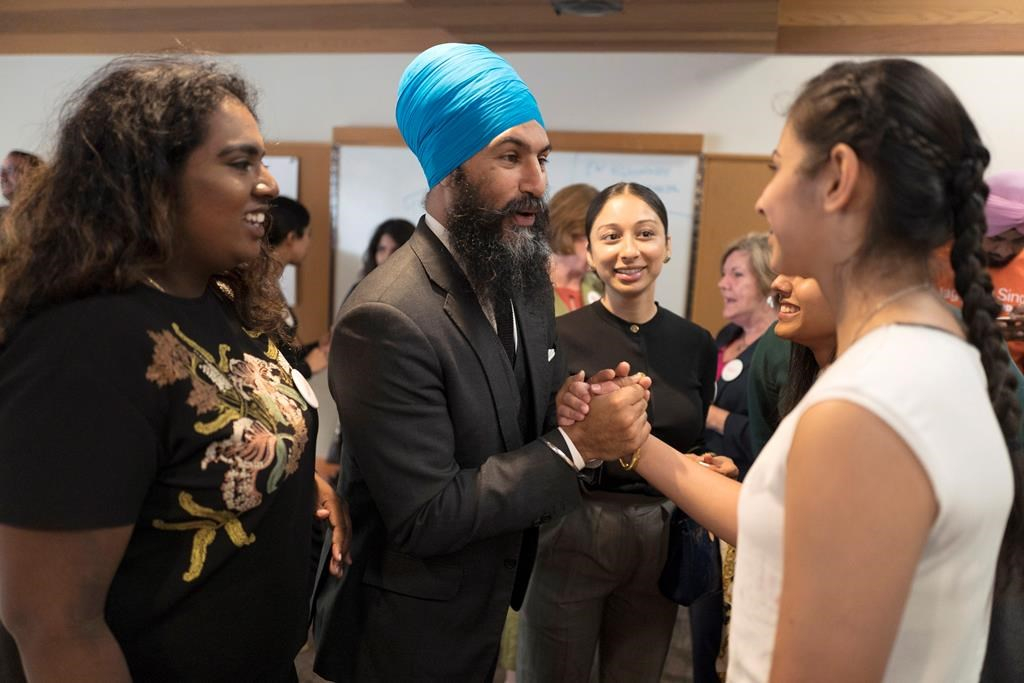
There are NDP party insiders, some publicly but mostly privately, who argue that a visible minority leader who wears a turban will have a challenge gaining traction in the Prairie provinces, in Quebec, in large parts of rural Canada. How do you answer these critiques leveled towards your campaign?
Well, I respectfully disagree. Give me enough time in front of any group and I’m confident we can connect. More importantly, around values, vision, where we want to go, I’m confident our policies will relate to people across the country. With respect to Quebec, people have raised this concern, but that hasn’t been my experience. I’m been to Quebec regularly as a kid, I fell in love with the French language. I learned it as a kid growing up. I was the kid of immigrants growing up in rural Canada and told my parents I wanted to learn French. People in Quebec are open-minded and open-hearted and they share NDP values. The values that I have are social democratic ideas, progressive ideas that people in Quebec share. Not just in Quebec but the Prairie provinces and across the country. In fact, Prairie socialists really believe in getting in to a position of power so we can implement our values. I believe in that too. I don’t want to be the conscience of the country, I want to implement our policies so we can make lives better for people.
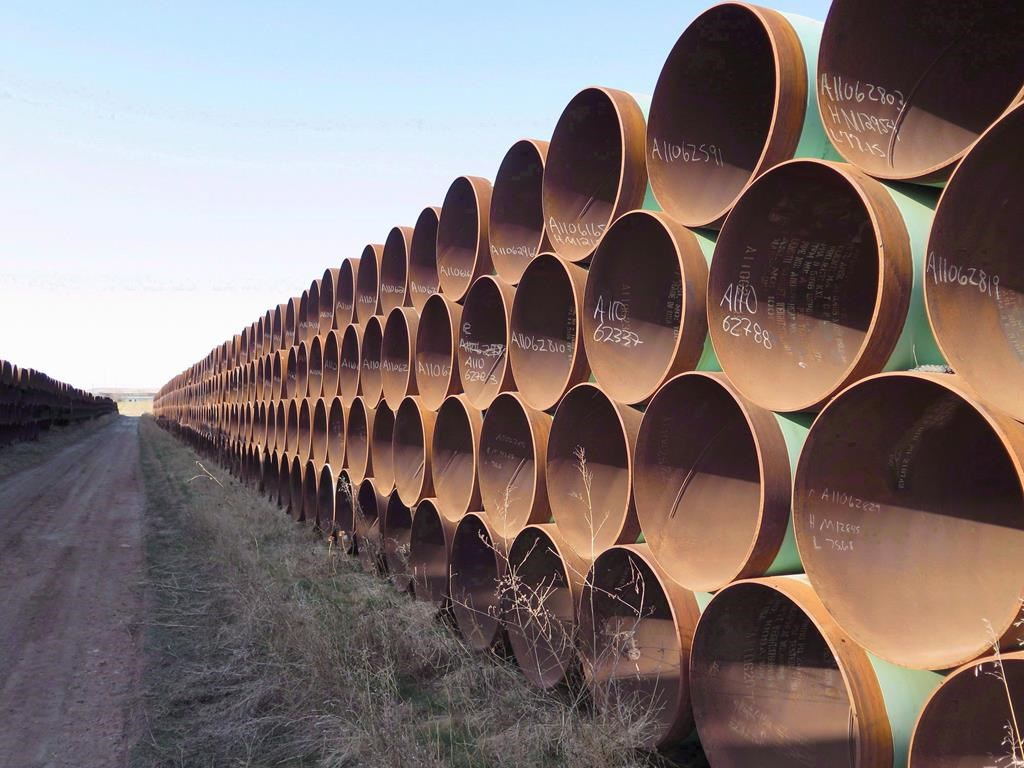
What would you describe as your top three priorities, or to-do items, when it comes to the environment?
My Green Economy and Climate Agenda is a comprehensive climate policy that would reduce carbon emissions by 30 per cent of 2005 levels by 2025. This would put Canada on the path to meeting our Paris targets by 2050. My plan ensures governments and businesses, now and in the future, remain accountable to our climate commitments. My plan prioritizes climate justice. Climate policy cannot leave workers and communities behind nor trample the rights of Indigenous communities.
It also includes a major investment and innovation role for the public sector, including with respect to greening buildings, transportation, and developing renewables and clean technologies. It will make investments for industries and regions undergoing change to ensure that no worker is left behind.
In general, what is your take on oilsands pipelines, and arguments from industry, the Alberta government, and federal governments, that they are safe and necessary?
In addition to undergoing rigorous environmental assessments, any new energy project must have the free, prior and informed consent of Indigenous people and communities and respect UNDRIP. They should also be consistent with our climate targets.
More specifically, where do you stand on the Kinder Morgan Trans Mountain, Energy East, and Keystone XL pipelines?
I oppose the development of Kinder Morgan, Energy East, and Keystone XL pipelines.
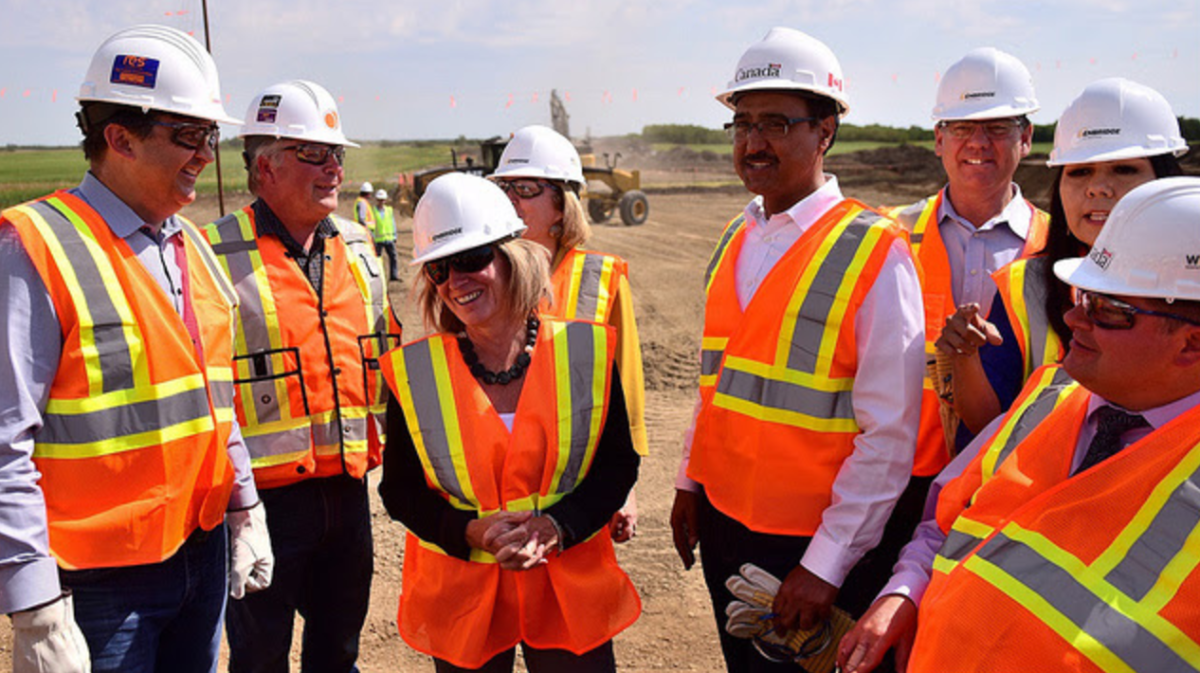
What kinds of working relationships do you expect to have with Alberta Premier Rachel Notley and B.C. Premier John Horgan? Both are NDP premiers, but they come to the Trans Mountain pipeline expansion from very different sides. Does their difference of opinion on pipelines tell us anything about the national NDP scene?
Both Rachel Notley and John Horgan should be commended by Canadians. Rachel Notley’s Climate Leadership Plan is the most ambitious climate plan of any province in Canada and has been widely praised by environmentalists, industry and First Nations communities. Notley’s
Climate Leadership Plan does the hard work to diversify Alberta’s economy, cares for workers, implements an ambitious carbon pricing agenda on greenhouse gases, puts an end to pollution from coal-generated electricity by 2030, caps oil sands emissions, and commits to reducing
methane emissions by 45% by 2025.
John Horgan’s Clean Growth Climate Action plan also works to meet climate targets, create jobs, and uses rebate cheques to make carbon taxes more equitable and affordable for low and middle income people. Horgan’s commitment to the United Nations Declaration on the Rights
of Indigenous Peoples (UNDRIP) and protecting BC’s waterways and environment is also very important.
As New Democrats, there are far more things we agree on than there are differences. I am confident that with my Green Economy and Climate Agenda, I will find considerable common ground with both provinces. We can only tackle climate change when a federal leader works
together with all provinces on a solution that serves all communities and workers.
Trudeau's cabinet members have talked a great deal in recent weeks about the need to incorporate climate change in NAFTA renegotiations. What is your assessment of Canada's potential to take an international role on climate? What are the roadblocks?
We have an opportunity in renegotiating NAFTA. Canada cannot repeat the errors of past trade agreements. That means worker’s right and the environment must be top priorities. Canada is the most sued nation under NAFTA. If we’re going to renegotiate NAFTA, it is absolutely imperative we end the undemocratic process of of Investor State Dispute Settlement clauses.
Am Johal has worked in community development with government, non-profit organizations and universities, and he is a board member with the Vancity Community Foundation. In the late '90s, he worked as an advisor for British Columbia's NDP in the Ministry of Transportation and Highways and the Ministry of Community Development, Cooperatives and Volunteers.

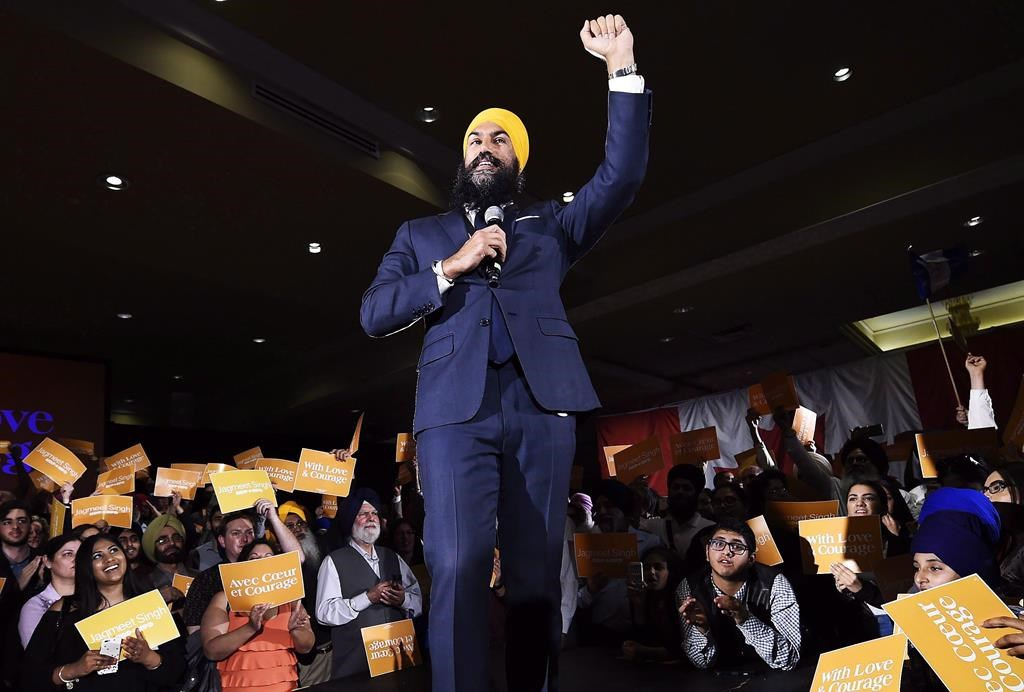
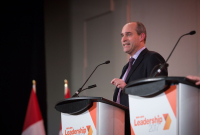
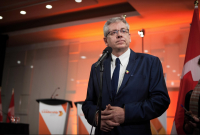

Comments